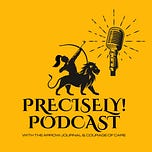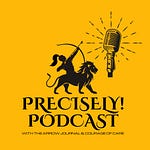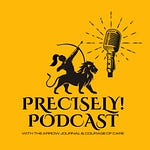In our third episode, host Brooke D. Lavelle talks with beloved friend and colleague, Dr. Monika Son, about her moving personal essay, “The Middle Path of Zen: Reconciling Everyday Heartbreak and Rage with Possibility.” This essay appears in our recent special issue, The Power of the Pluriverse. Read the full essay and access our full digital archives by subscribing to our substack.
From the essay:
“For a teaching on social justice in my chaplaincy program, my cohort and I were offered a teaching on freedom and liberation by Jarvis Jay Masters, a dharma teacher who has lived the past twenty years of his life on death row. His death sentence came after being wrongfully accused of a crime while serving time for something else. At the end of our time together, we asked what he needed from us, and he replied, “your prayers.” No person was exempt from tears as words of prayers appeared on the Zoom chat of our call. After our call, I sat with the heaviness of his injustice and the injustice of all whose lives have been impacted by incarceration—those who are currently physically imprisoned, their family members, and the staff working in prisons. I thought about my uncle, who spent twelve years in prison and was deported and separated from his two daughters and brother (my dad), and how I never really got to know him. I thought about the students I had the privilege of teaching, many of them Black and Brown, a few formerly incarcerated, some corrections officers, police officers, and others preparing to enter law school. Our time with Mr. Masters allowed me to vividly see, for the first time in some time after teaching at a college for criminal justice, the interconnection of all the different lives that cross paths in the devastation of incarceration. Although those of us who are marginalized in this country may not suffer from physical imprisonment, the suffering of oppression is like a prison of the mind. Liberation, or being free from the conditioning of white supremacy, is what we are seeking.
I used to teach on the 13th amendment in my education and justice courses. I explored with my students, most of them of Black and Brown lineages, which bodies are “free” and how to critically examine the policies/laws in our systems that undermine “freedom.” On some level, however, I never felt like I was really teaching about policies or systems, and I think my students felt it too. My failed attempts to teach about systemic oppression were likely the beginnings of an inquiry into liberation and the desire to be in community with others who were also on the spiritual path of this inquiry. I recalled the deep yearning to be free from the mental prison of racism and the experiences of suffering it created in my life and the lives of those around me. I used to think that some of us (those of us who bore the burden of injustice) really deserved to be free. Surely, there had to be a respite somewhere down the road because I could not understand why the pain of othering was only a burden for some.
At times, the injustices of the world left me feeling like the world was hopeless and dark and that the light at the end of the tunnel shone for others, but not me and my people. I thought that some of us have the luxury of knowing freedom, to even imagine it, and some of us don’t. Feeling helpless and trapped, I turned to teaching and mastering concepts linked to injustice to gain some control. I taught in order to free others and to be freed. If I could teach others to identify, prevent, or change racism and oppression, I would surely be emancipated from their damage, right? For many years my study and work on issues of equity, power, and privilege consumed me, leaving me at worst apathetic and at best a serial self-righteous shamer of those who were complicit in systemic oppression—myself included. But that evening after chaplaincy class, as the energy we created together with Mr. Masters began to settle deep into my psyche, two questions he posed invited further investigation:
How do I get out of this attachment to who I think I am?
How do I get out of this attachment to how the world has treated me?”
Monika L. Son, Ph.D. (she/her), is a consultant, certified Embodied Leadership Coach and trauma informed facilitator. As a trained psychologist and expert facilitator with a twenty-year career in teaching on issues of access, opportunity and justice, she is skilled at supporting and building containers that examine issues around identity, oppression, power and privilege. In that time, Dr. Son has found that embodied, contemplative based skills and practices are what seed and ground sustainable transformative change. Her deep passion is to support change leaders who choose to bring fierce loving radical love and compassion to the spaces they impact. Ultimately, her joy is to cultivate healing and facilitate the increasing presence of light in humanity.
Monika is a student in the Buddhist Soto Zen lineage and graduate of the Upaya Chaplaincy program. She holds a practice of meditation, yoga and somatic practices for more than a decade. She is daughter of Dominican immigrants, a parent of two mixed raced boys, and enjoys planting, gardens and dancing bachata and travel adventures with her husband John.
Learn more about Monika at:
https://www.serenterowholebeingcoaching.com/











